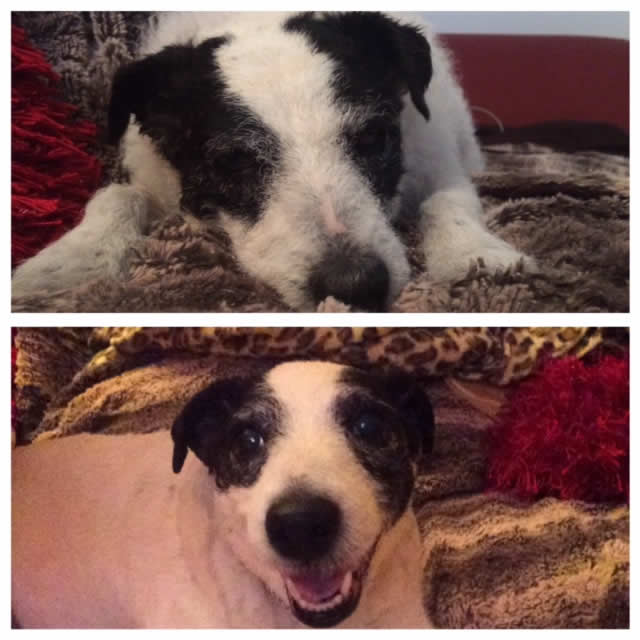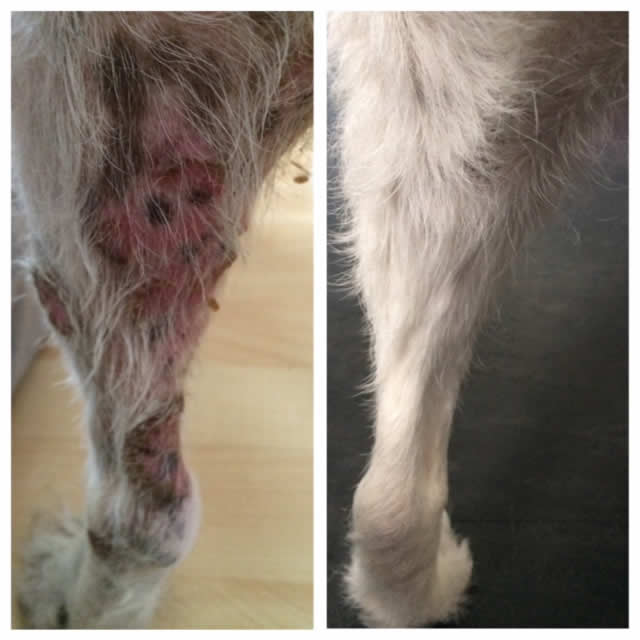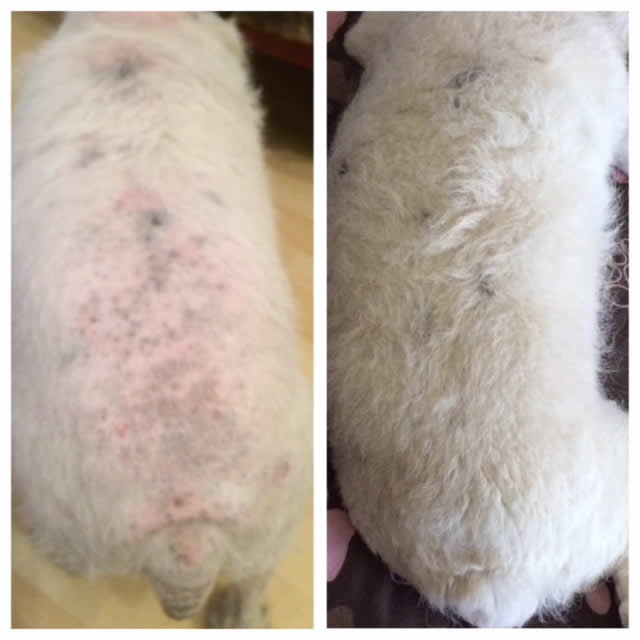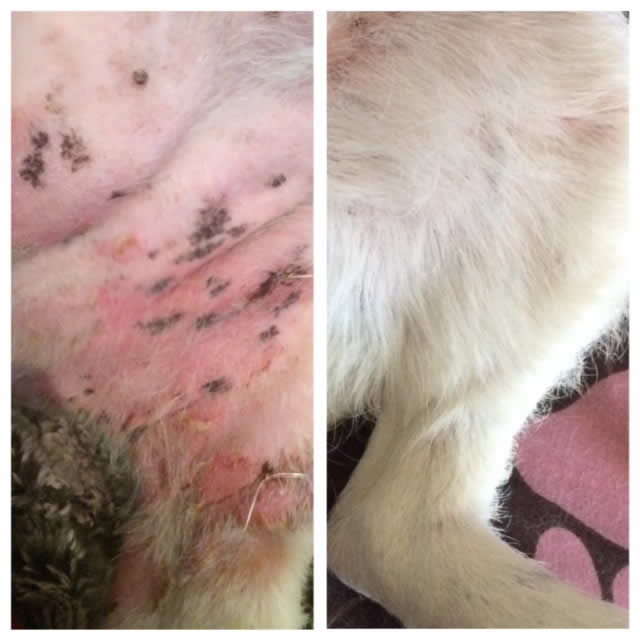Poppy is a 9 year old Jack Russell Terrier cross who came to see us for skin and ear problems. Whilst Poppy’s skin condition improved with treatment we struggled to get it to resolve fully and she suffered frequent flare ups and infections.
She had also continued to gain weight despite her owner being very strict with her diet. To look for possible underlying causes of Poppy’s problems we checked her thyroid hormone level and found that she had an underactive thyroid gland.
Hypothyroidism is the most common hormonal condition of dogs estimated to affect up to 0.6% of the canine population.
It is caused by loss of the hormone producing tissue of the thyroid gland either due to an inflammatory process (lymphocytic thyroiditis) or unexplained atrophy of the gland.
Any breed of dog can be affected but it is seen more commonly in Dobermans, Golden Retrievers, Spaniels, Terriers and Setters. Most dogs are middle aged to elderly at diagnosis but it has been seen in patients as young as 2 years old. Males and females seem to be equally affected.
The thyroid gland produces the hormones T4 and T3 which are important in body metabolism. As a result of this a reduction in thyroid hormone level can have a wide variety of effects on the whole body.
This makes the disease very challenging to diagnose as each patient will show different clinical signs, many of which can be quite vague. The signs which may make us suspicious of thyroid deficiency include :-
-
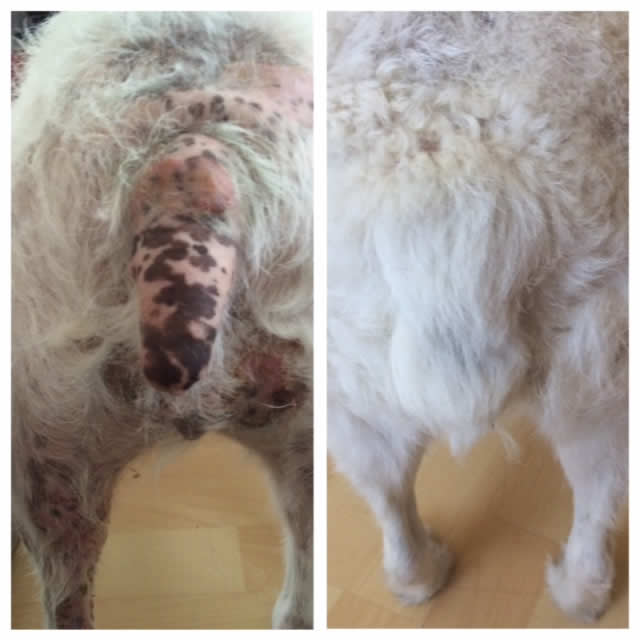 Weight gain
Weight gain -
Lethargy and exercise intolerance
-
Weakness
-
Slow heart rate
-
Skin disease and alopecia
-
Raised blood cholesterol levels
We can diagnose hypothyroidism by testing blood levels of T4 and also of the hormone TSH which controls T4 release from the thyroid gland. Poppy had a low T4 level despite high TSH levels trying to stimulate her thyroid gland.
The condition can be easily treated by daily oral thyroid hormone replacement usually giving rapid improvement in clinical signs. Patients have blood T4 levels monitored periodically to allow us to give the correct dose of hormone to each dog. Very quickly after starting her treatment Poppy’s condition began to improve.
She has made good progress with her weight loss and as you can see from the photographs her skin and hair coat have improved dramatically. Her owner says she has ‘gone from being a sad lethargic dog to a crazy little rascal’!
Poppy is a real character and vet Helen looks forward to seeing her for check up and blood test appointments.
See the remarkable before and after photos below.
I can not thank Helen and the team enough for giving me back my crazy little dog.
It was very hard to see Poppy so poorly. Thank u so much xx
Spring Greetings!
Spring greetings from us all at Prospect House Vets
Easter Opening Times at Prospect House
The Practice will be closed over the whole Easter Weekend
Vaccine shortages
We are unfortunately experiencing a supply shortage with some components of our Cat Vaccinations

